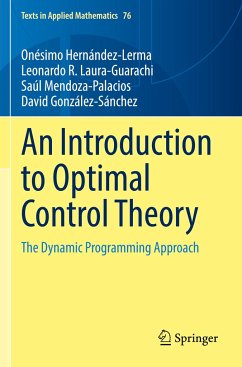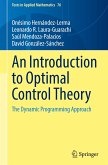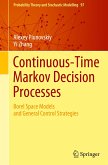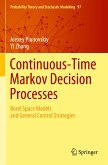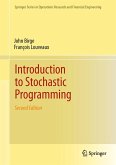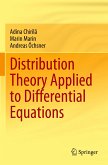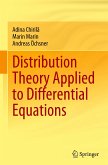This book introduces optimal control problems for large families of deterministic and stochastic systems with discrete or continuous time parameter. These families include most of the systems studied in many disciplines, including Economics, Engineering, Operations Research, and Management Science, among many others.
The main objective is to give a concise, systematic, and reasonably self contained presentation of some key topics in optimal control theory. To this end, most of the analyses are based on the dynamic programming (DP) technique. This technique is applicable to almost all control problems that appear in theory and applications. They include, for instance, finite and infinite horizon control problems in which the underlying dynamic system follows either a deterministic or stochastic difference or differential equation. In the infinite horizon case, it also uses DP to study undiscounted problems, such as the ergodic or long-run average cost.
After a general introduction to control problems, the book covers the topic dividing into four parts with different dynamical systems: control of discrete-time deterministic systems, discrete-time stochastic systems, ordinary differential equations, and finally a general continuous-time MCP with applications for stochastic differential equations.
The first and second part should be accessible to undergraduate students with some knowledge of elementary calculus, linear algebra, and some concepts from probability theory (random variables, expectations, and so forth). Whereas the third and fourth part would be appropriate for advanced undergraduates or graduate students who have a working knowledge of mathematical analysis (derivatives, integrals, ...) and stochastic processes.
The main objective is to give a concise, systematic, and reasonably self contained presentation of some key topics in optimal control theory. To this end, most of the analyses are based on the dynamic programming (DP) technique. This technique is applicable to almost all control problems that appear in theory and applications. They include, for instance, finite and infinite horizon control problems in which the underlying dynamic system follows either a deterministic or stochastic difference or differential equation. In the infinite horizon case, it also uses DP to study undiscounted problems, such as the ergodic or long-run average cost.
After a general introduction to control problems, the book covers the topic dividing into four parts with different dynamical systems: control of discrete-time deterministic systems, discrete-time stochastic systems, ordinary differential equations, and finally a general continuous-time MCP with applications for stochastic differential equations.
The first and second part should be accessible to undergraduate students with some knowledge of elementary calculus, linear algebra, and some concepts from probability theory (random variables, expectations, and so forth). Whereas the third and fourth part would be appropriate for advanced undergraduates or graduate students who have a working knowledge of mathematical analysis (derivatives, integrals, ...) and stochastic processes.
"This book is an introduction to optimal control theory, including deterministic and stochastic systems, with discrete-time and continuous-time parameters. The presentation of the book is very clear and no previous knowledge of control theory is required." (Hui Zhao, Mathematical Reviews, February, 2024)

